COVID-19 and the State of the Market
By Dan Stipe
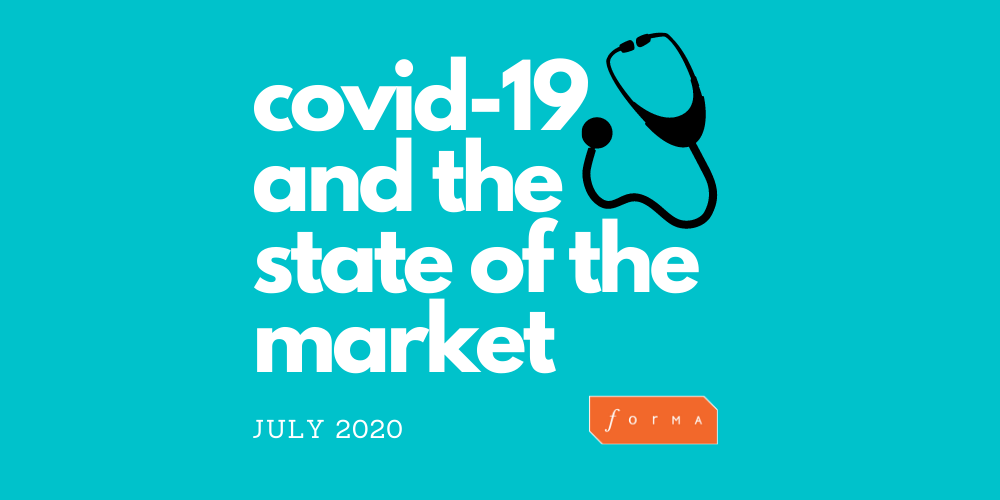
SUMMARY
VOLUME 1
, NUMER 1
Forma conducted a survey comprised of questions regarding business behavior and the 2020 Covid-19 outbreak. Respondents were asked a variety of questions about how their organizations are reacting to the current environment.
The business disruptions caused by the COVID-19 pandemic are obviously wide-spread. How can life science companies move forward amidst this uncertainty?
Forma conducted a survey to find out how companies have been affected, and what their greatest concerns and needs are now. We received responses from 66 individuals from a variety of Life Science entities: CRO’s, CDMO/CMO’s, Chemical, Biotech, Medical Device, Healthcare, and Pharmaceutical companies.
Following is a summary of results and discussion as to what opportunities the results might suggest.
What are your biggest business concerns now, considering COVID-19?
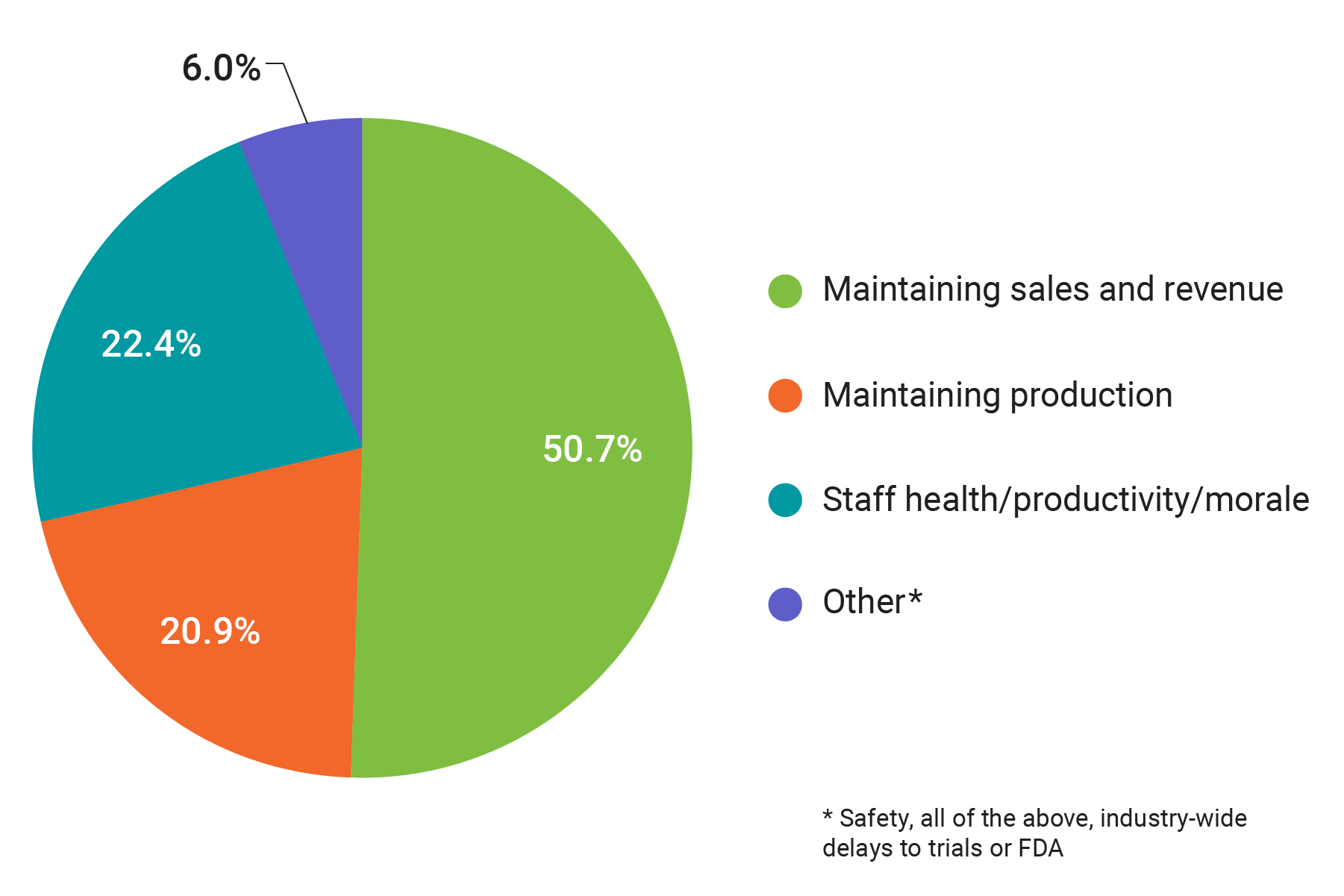
Maintaining sales and revenue is clearly a major concern. No one knows what lies ahead nor how the markets into which they sell might change. As the situation surrounding the pandemic develops, companies will need to adjust quickly to changing circumstances. From a marketing perspective, companies should be prepared to alter their messaging. Developing a nimble team that monitors trends and can pivot quickly will be essential.
Maintaining production can also be challenging, as about 21% of respondents showed this was a concern. If a team is working remotely or if providers/suppliers aren’t able to support the needs of facilities the same as pre COVID-19, it is understandable production would slow or be a different experience than normal.
Noting that health/productivity/morale is about a 22% concern for respondents, with staying healthy during COVID-19 being of course critical, maintaining a sense of spirit despite constant changes, adjusting to a new work environment remotely, and managing other stressors can affect employees and affect productivity. It will be important to check in on employees sense of wellbeing. Forbes recently published a helpful article on this very subject.
How has your sales and marketing approach changed because of the COVID-19 disruption?
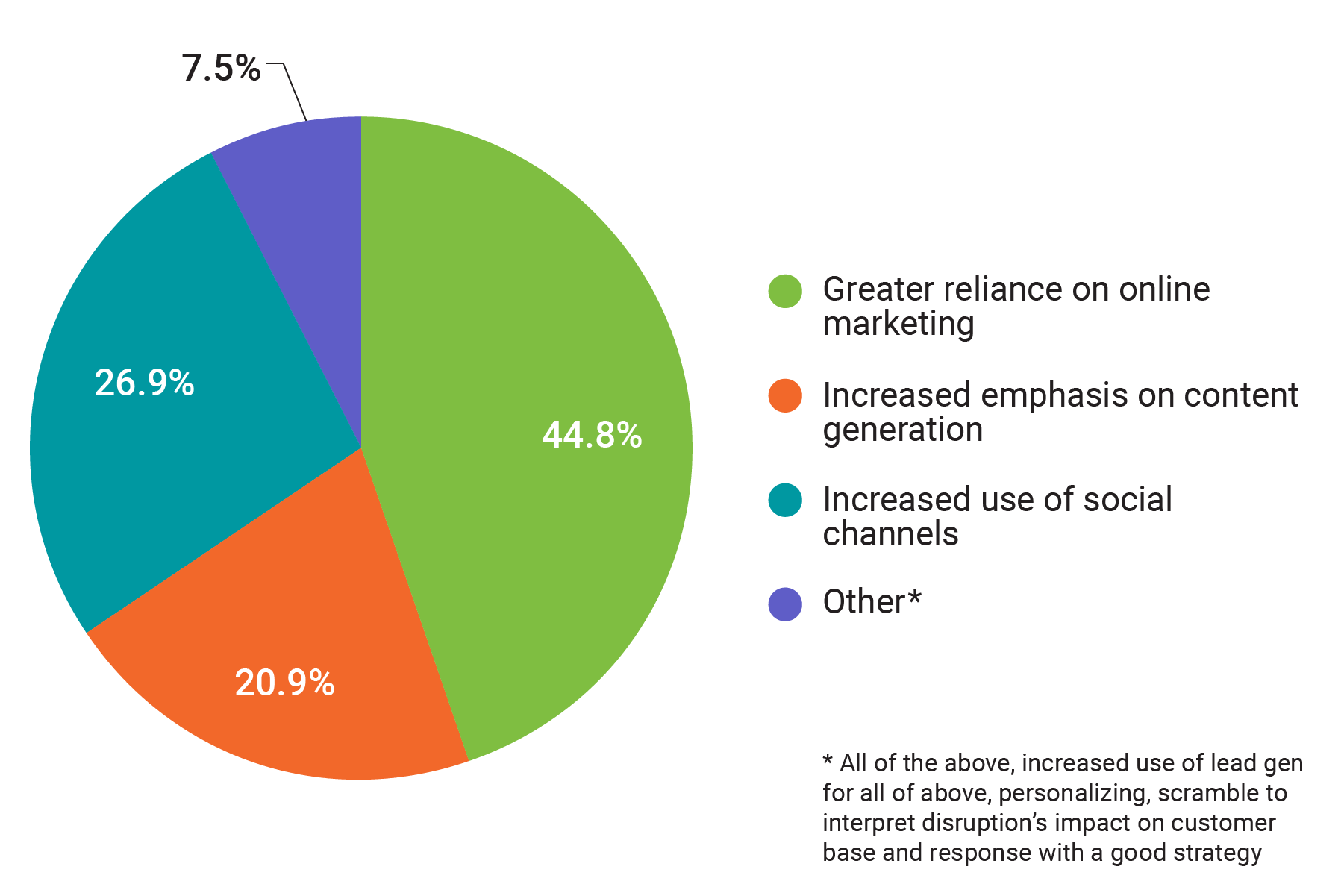
A greater reliance on on-line marketing is, unsurprisingly, the clear winner here. Generating more content and reaching out to customers via social channels are both being used more than they were pre-COVID. However, determining what is the right marketing strategy remains elusive.
Seeing that about 26% of companies are prioritizing the increased use of social channels, it’s important for companies to utilize the right channels for you and your audience, and whatever you do use, make sure your content is aligned with your company’s messaging and brand. As 44% of respondents share the importance of online marketing, having a streamlined approach with your online marketing presence is important here and can elevate your brand and stand out from others.
Have your vendors been responsive to how your needs have changed?
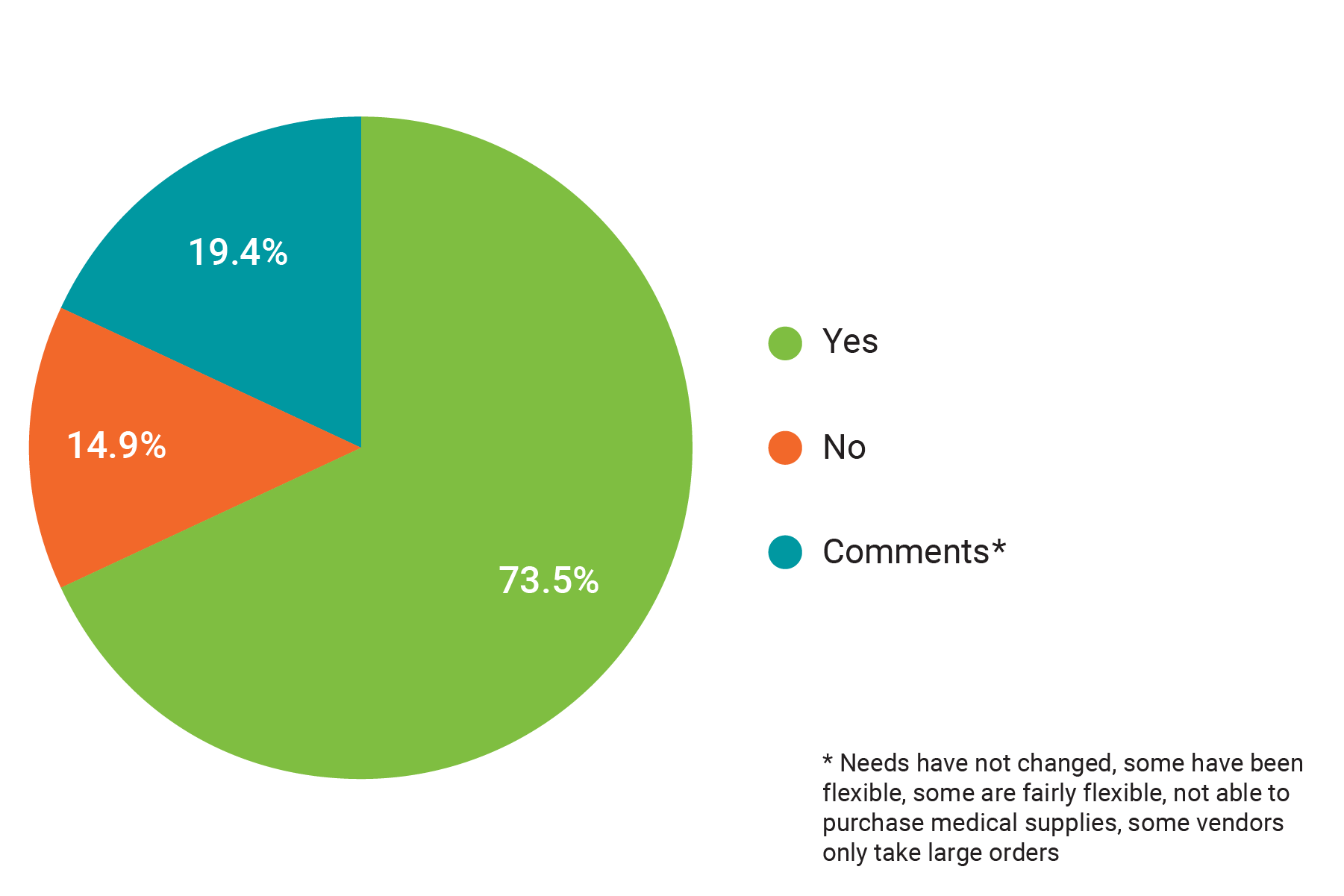
Clearly, the majority of vendors are accommodating their customers’ changing needs due to COVID. The disruption is affecting each link in the supply chain. In that regard, everyone is in the same boat, trying to figure out the best way to proceed.
From a sales and marketing perspective, what do you need the most help with now?
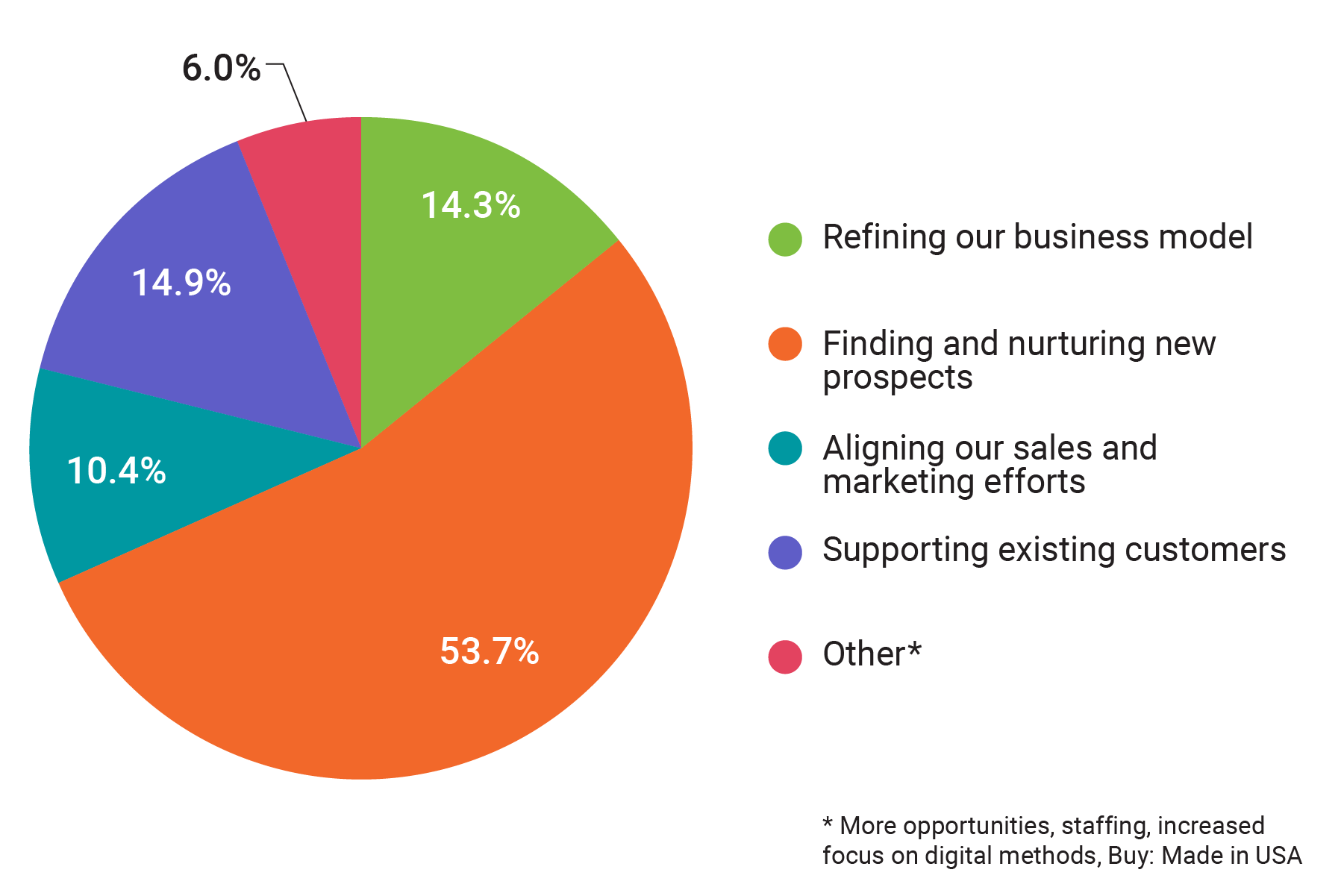
Finding and nurturing new prospects is the main concern of over half the respondents. As their vendors have been responsive to their company’s needs, they too are trying to be responsive in supporting their existing customer base. A similar 14% are looking at refining their business model in response to the COVID disruption. That is a significant finding, as changing the business model goes beyond changing marketing strategy/approach. It points to a sense that the business disruption could be long-lasting. That, in turn, requires a fundamental rethinking of foundational issues. Established companies are vulnerable to new competitors who have discovered business models more appropriate to our changing environment.
What is the most difficult challenge you need to overcome now?
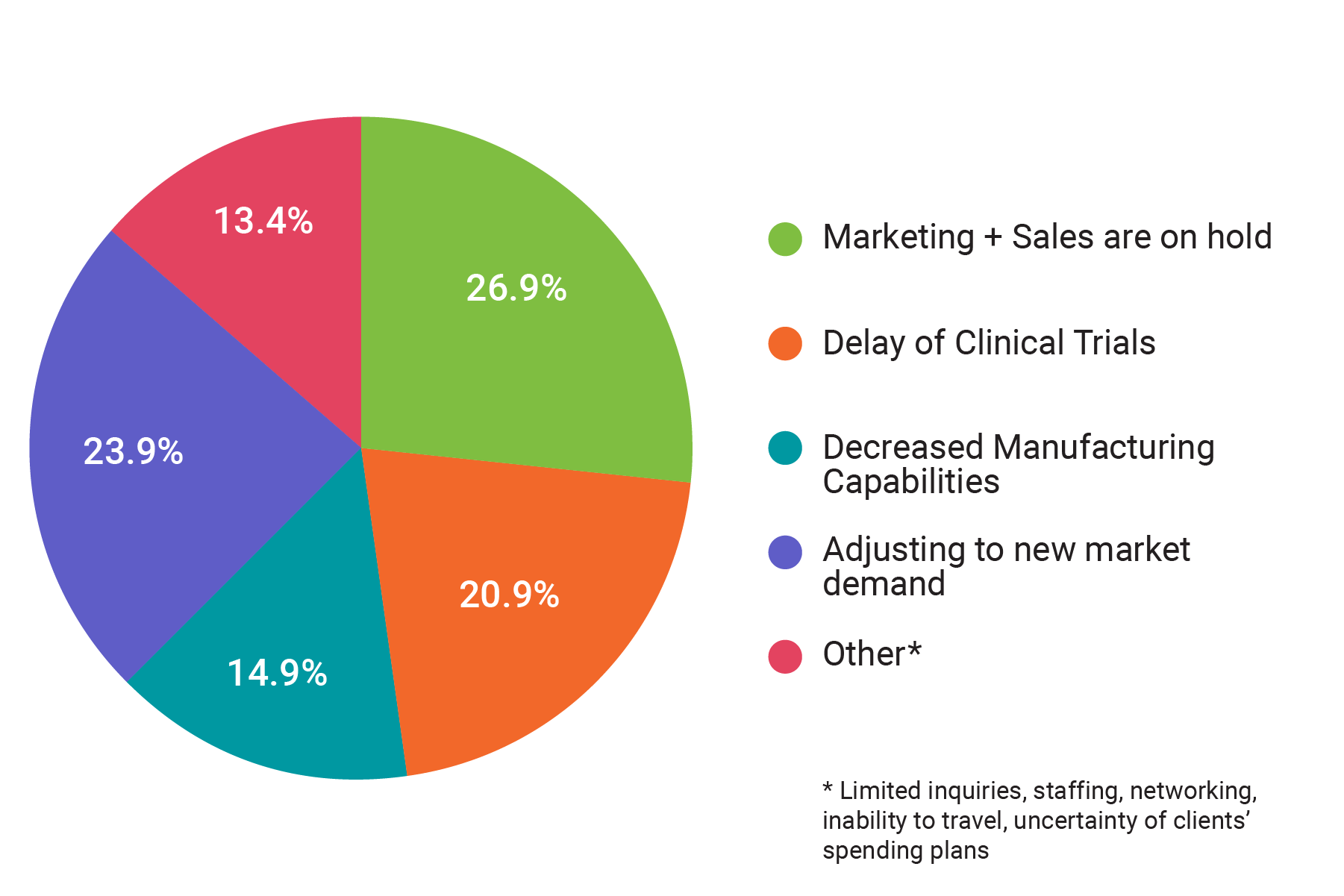
This question drew responses from across the board. Still, the overall sense is that of uncertainty. People are peering into a fog with little idea of what lies ahead. So they’re sending out probes (increasing content output, using social media more). They are looking for new ways to meet and network, to generate leads and nurture prospects, to restart marketing and sales efforts. In general, they are looking for new ways to conduct business. Companies are ready to adapt to the new and evolving situation at hand, and want to determine what is best and a top priority.
Has your company been working from home?
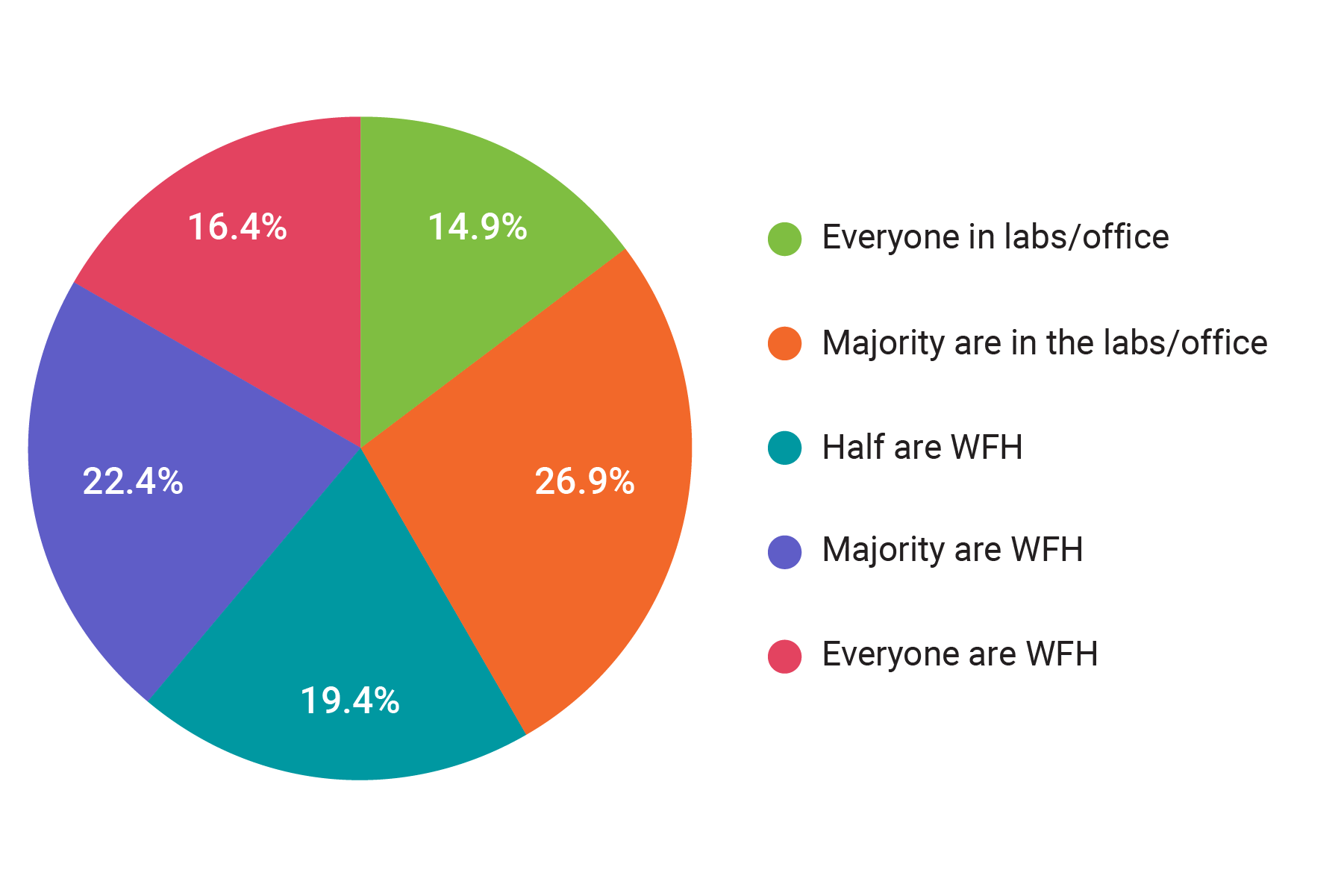
Although it’s a mixed bag, more than 40% of respondents said all or the majority of their company staff is still working in the lab or in the office. Perhaps not surprising for manufacturing and research-based companies. Even amidst quarantines and lock-downs, some companies are finding ways to maintain more or less traditional operations. Still, 60% are now working from home to an extent, and that represents a big change. What effect might this have on the sharing of research and scientific knowledge?
With a remote workforce, what is most important to you?
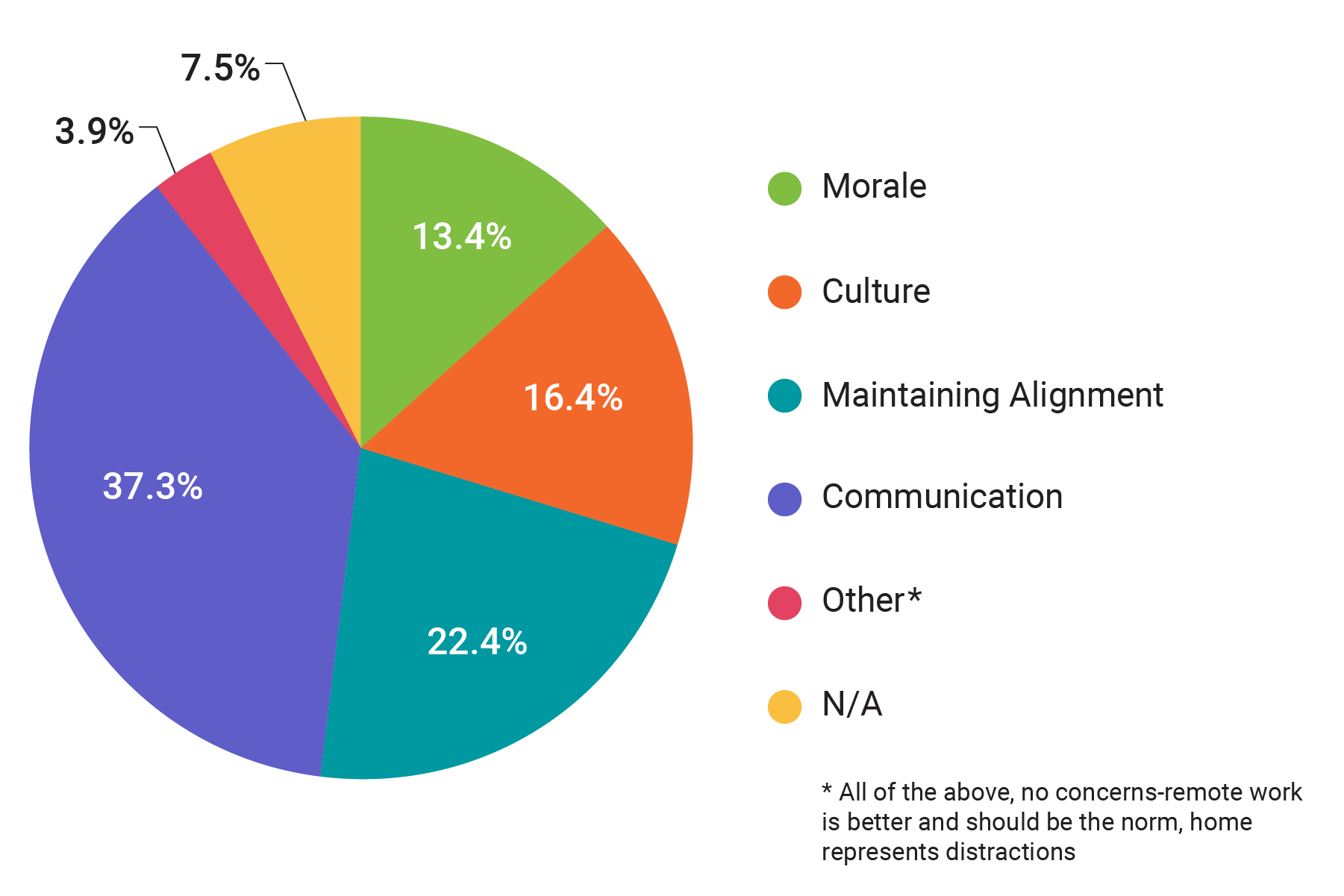
Maintaining effective communications is the biggest concern, followed by maintaining employee alignment and company culture. Operating from home works well for some, for others, not so much. Certainly that depends on personality, work style, and individual home environments. Adjusting a communication style from in office to remote can be a challenge for some as your workforce adapts. For more tips on how to communicate to your clients, team or prospects stopping by your website, check out our blog on adapting your communication style during times of uncertainty.
We will probably see new programs/apps developed to facilitate communication and document sharing between company/project team members. We’ve already seen a huge increase in the use of tools such as Zoom and Slack.
Maintaining employee alignment and company culture could be a trickier problem. Most companies don’t have an effective means of maintaining employee alignment. Archetypes are a powerful tool that Forma has pioneered to help companies bring their employees into alignment with company goals. Having a defining archetype also helps in many other ways, establishing a company culture being among them. Approximately 16% of survey respondents chose ‘culture’ as a priority with a remote workforce.
What best describes your company?
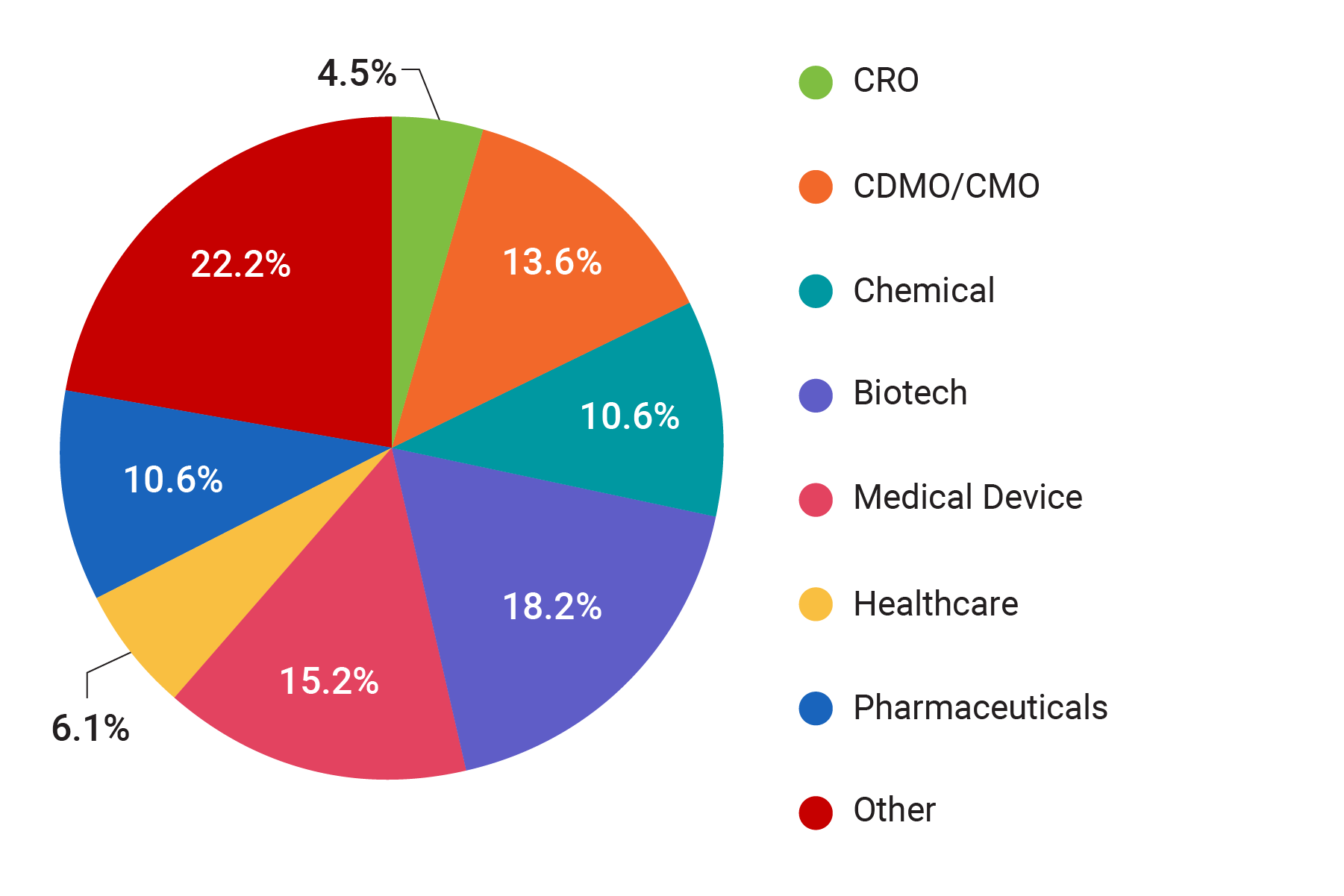
As you can see, a broad range of company focus is represented in the survey. Survey results reflect that manufacturing and research-based companies are faced with more difficult challenges due to the COVID-19 environment than are companies whose employees don’t need to work together in a common facility. Still, marketing and sales methodologies will need to change across the board due to the reduced desire for face-to-face meetings.
Has COVID-19 impacted the need for digital transformation for your business?
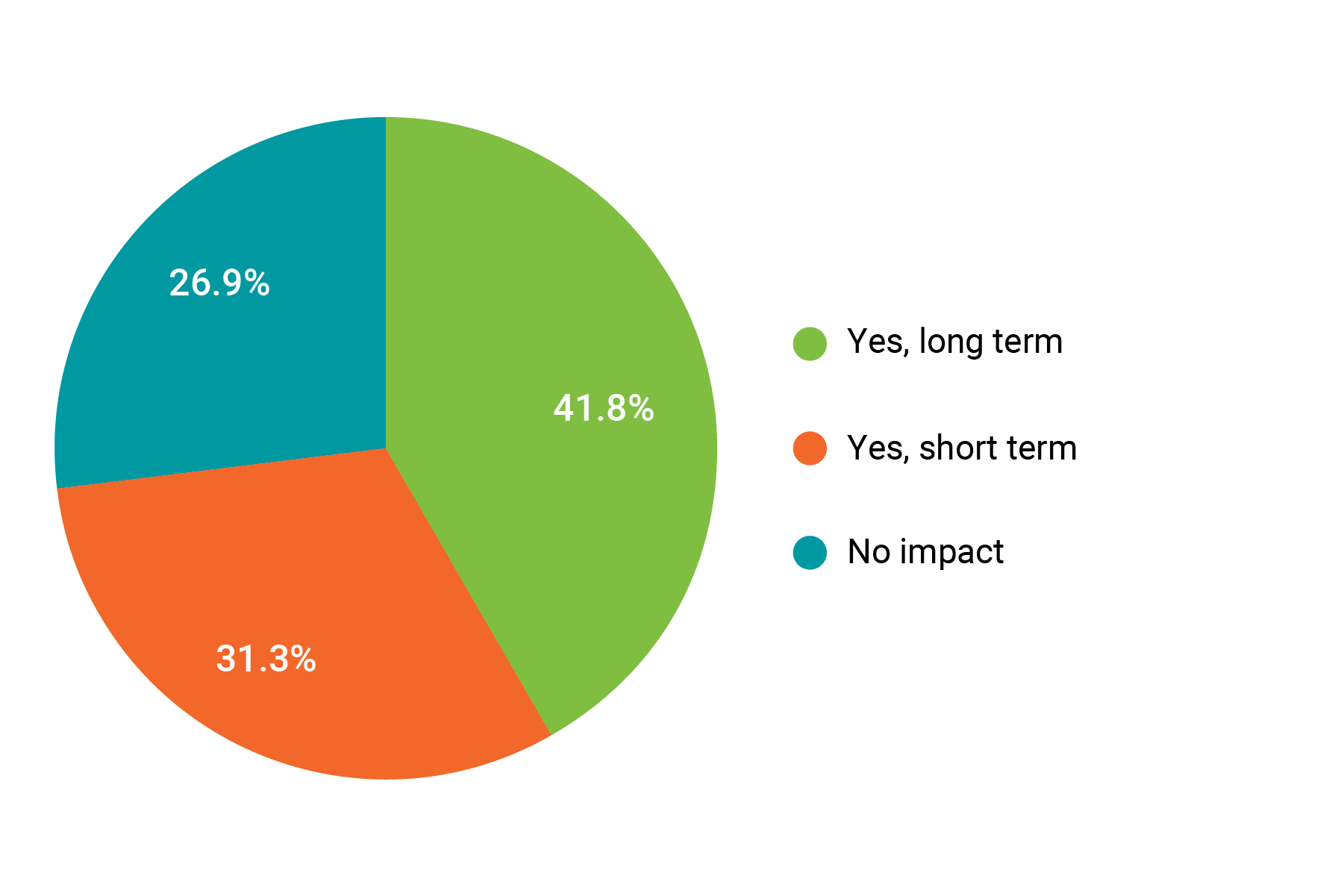
Almost 42% of respondents thought COVID-19 would have a long-term impact on their digital operations. Cybersecurity, communications, marketing and sales, system maintenance – all will be affected by the sudden necessity for a large portion of the workforce to be dispersed. Although the majority of respondents thought the need for changes in their digital capabilities would not be necessary or would be only temporary, counting on that is a riskier strategy.
Is remote working a sustainable practice for your business long term?
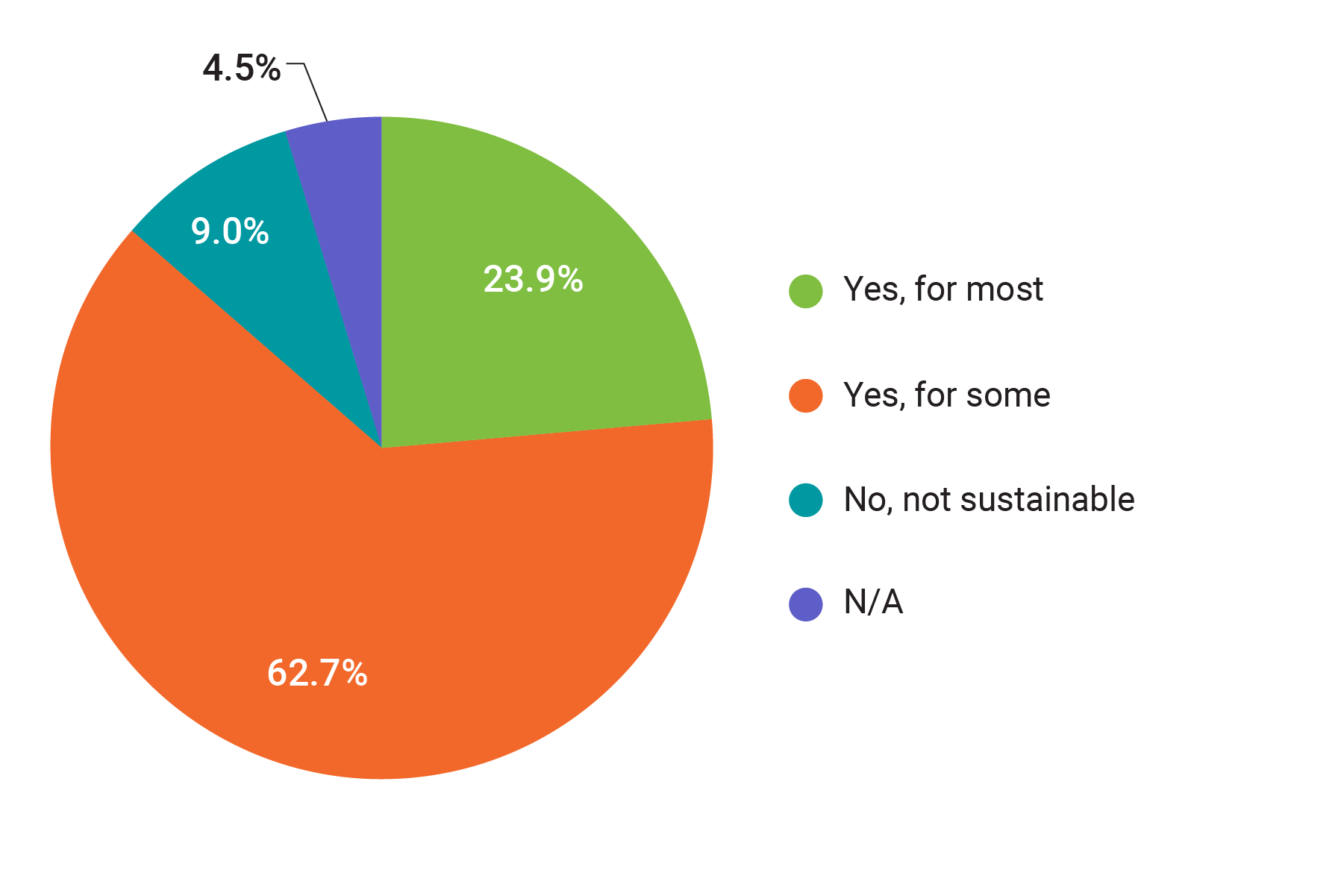
More than 86% of respondents think that remote work for some or most of their company’s employees is sustainable in the long run. That is a remarkable result. Of course, how this bears out in actuality remains to be seen, but no matter how it ends up, the effects will be wide-ranging.
Did your organization invest in new technology to facilitate remote operations?
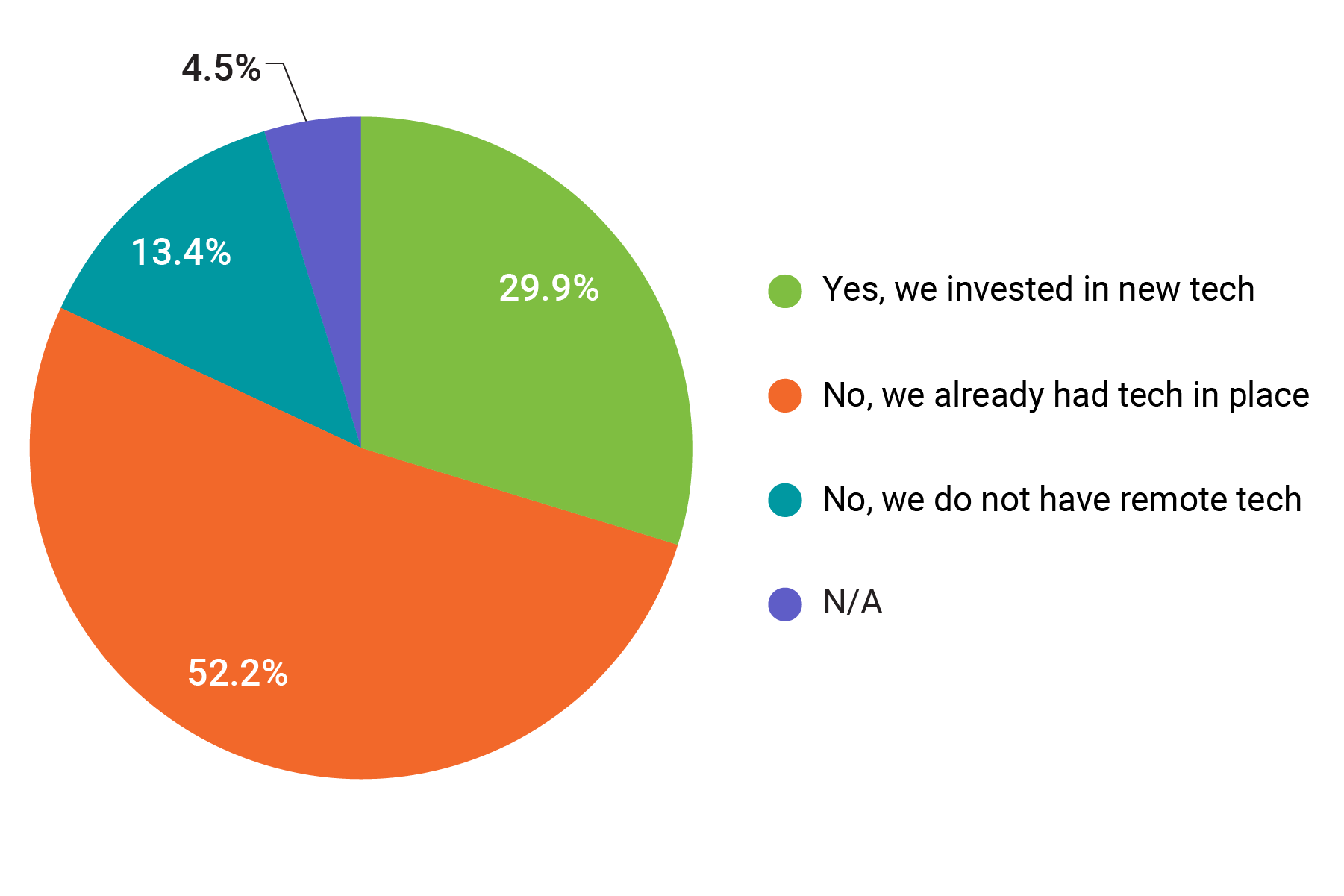
Although the majority of companies had the technology for remote operations already in place, almost 30% needed to upgrade their capabilities. If COVID restrictions continue, we suspect more companies will need to upgrade their digital technology.
How has your organization responded to COVID-19?
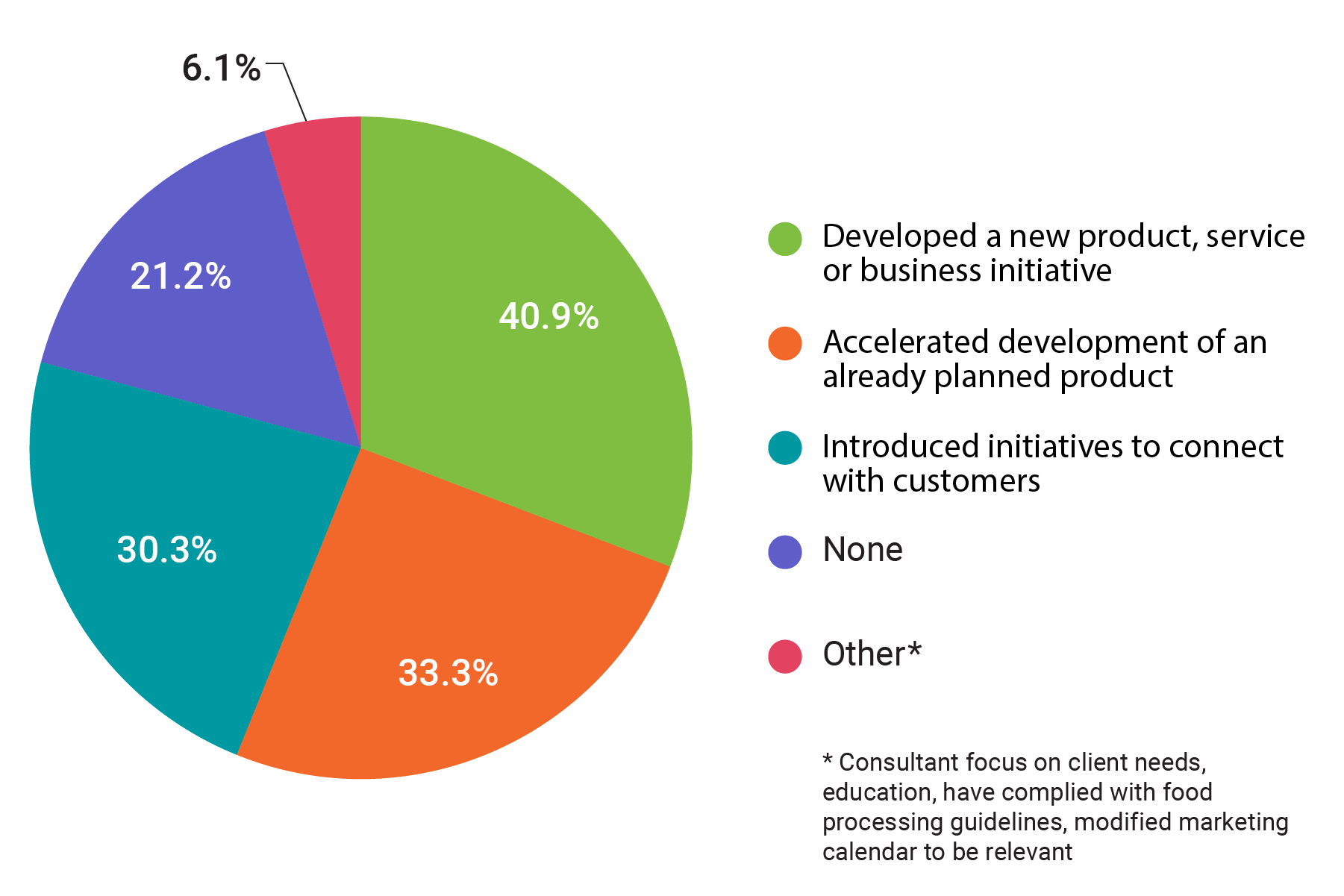
Responses here reflect the fact that companies are desperately trying to figure out how to operate in this new environment. Over 40% have developed new products, services, or business initiatives in response to COVID-19. Over 30% have instituted new initiatives to connect with customers, reflecting the reality that the trade show industry has been especially impacted by COVID-19. Virtual trade shows are being conducted, but traditionally, a lot of business has been transacted off the trade show floor and via chance encounters. That opportunity has been taken away.
How do you expect COVID-19 to impact the way your sales organization will operate long-term?
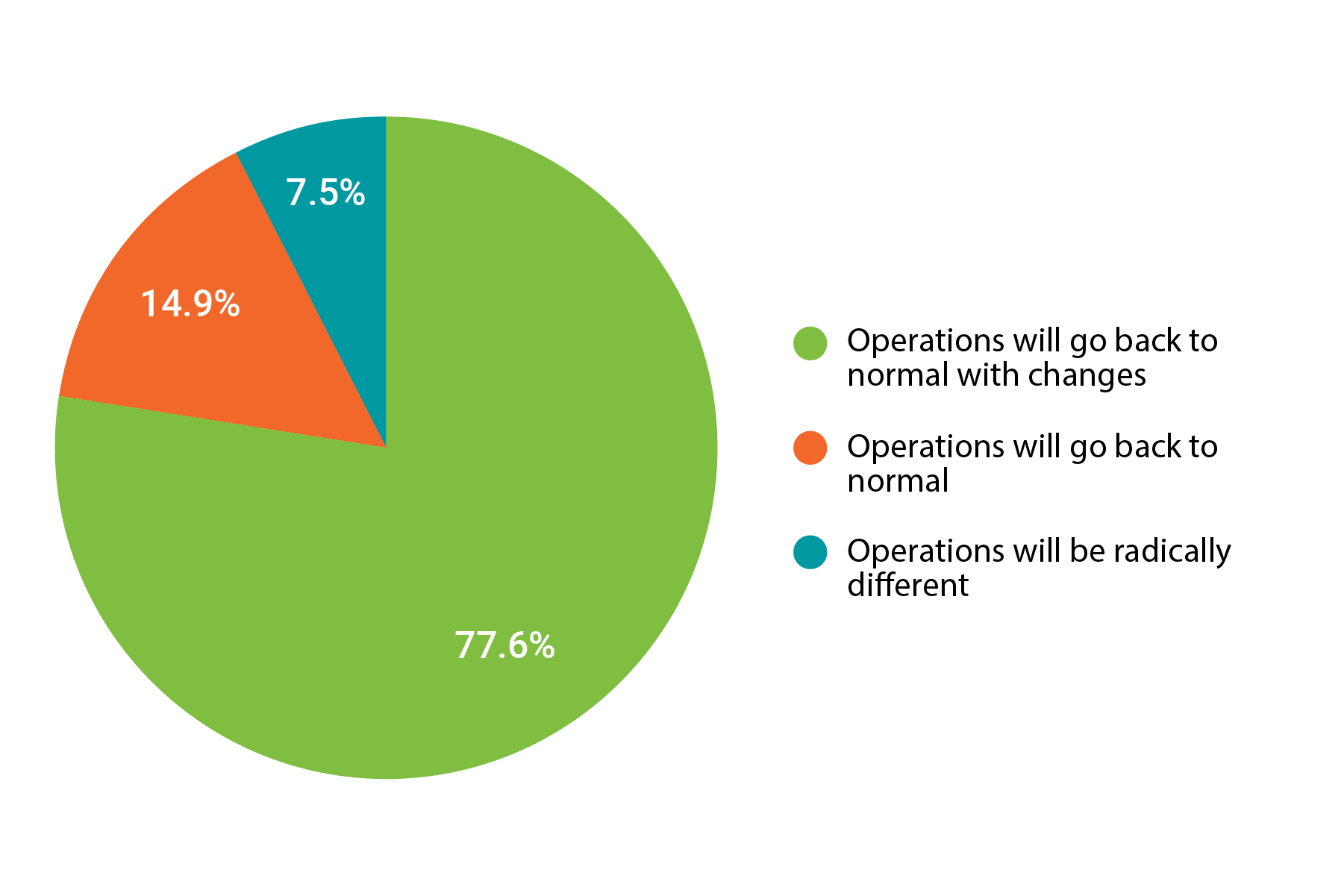
Only 7.5% of respondents think that their operations will be radically different in the wake of COVID-19. Fully 92.5% think that business will go back to normal, or with just some changes. With most people simply hoping to wait it out, there could be significant opportunities for companies that can be proactive and disruptive. If COVID restrictions last for any length of time, a wait-and-see attitude could prove disastrous.
As you can see, many organizations are taking this outbreak seriously, and are adapting to the current environment. By taking a proactive approach, these companies will be better positioned for a post-Covid environment, whatever that may look like. If you’re curious how Forma can assist with your digital transformation during this tumultuous time, don’t hesitate to reach out today.
The Marketing of Science is published by Forma Life Science Marketing approximately ten times per year. To subscribe to this free publication, email us at info@formalifesciencemarketing.com.
David Chapin is author of the book “The Marketing of Science: Making the Complex Compelling,” available now from Rockbench Press and on Amazon. He was named Best Consultant in the inaugural 2013 BDO Triangle Life Science Awards. David serves on the board of NCBio.
David has a Bachelor’s degree in Physics from Swarthmore College and a Master’s degree in Design from NC State University. He is the named inventor on more than forty patents in the US and abroad. His work has been recognized by AIGA, and featured in publications such as the Harvard Business Review, ID magazine, Print magazine, Design News magazine and Medical Marketing and Media. David has authored articles published by Life Science Leader, Impact, and PharmaExec magazines and MedAd News. He has taught at the Kenan-Flagler Business School at UNC-Chapel Hill and at the College of Design at NC State University. He has lectured and presented to numerous groups about various topics in marketing.
Forma Life Science Marketing is a leading marketing firm for life science, companies. Forma works with life science organizations to increase marketing effectiveness and drive revenue, differentiate organizations, focus their messages and align their employee teams. Forma distills and communicates complex messages into compelling communications; we make the complex compelling.
© 2024 Forma Life Science Marketing, Inc. All rights reserved. No part of this document may be reproduced or transmitted without obtaining written permission from Forma Life Science Marketing.
